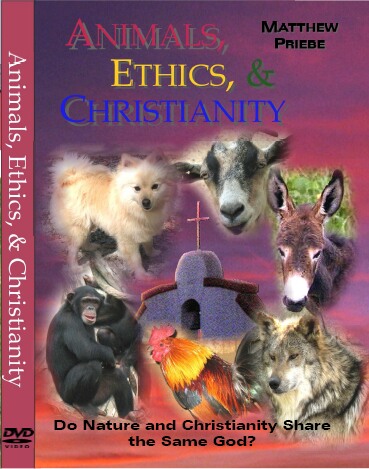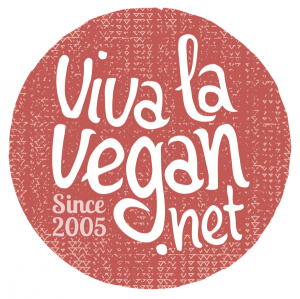
by Matthew Priebe author of Animals, Ethics & Christianity
When we look at the Bible today or observe Christians in action, it is easy to think that their religion is at best indifferent to animal suffering and at worst promotes it. But what if that is due to human misuse of Scripture, using any pretext to dominate the helpless? We should always look first to the Bible to see what it actually says, rather than going by those Christians who supposedly represent it. To that end, I will examine a few areas involving animals and see what we can discover from the Bible. Since the eating of animals is such a major issue, I examine that point alone in a second article.
There are a few quick points to get us started. At no point anywhere is sport hunting or fishing ever allowed for the faithful. The only hunters specifically mentioned are evil men who defy God’s ways, Nimrod and Esau. (Genesis 10 and 25) Hunting and fishing are only ever allowed for food. The wearing of skins for protective clothing is allowed in the Bible, but never as a luxury fashion item of our wasteful consumerism. One other fact of Scripture is that God reserves ownership of all life to Himself. (Psalm 50:10-12) Humans cannot own what belongs to God, eliminating the justification of human and animal slavery from the Bible.
There are many places in Scripture where provisions are made to eliminate or reduce animal suffering. I list many of those in my book Animals, Ethics & Christianity, and will only highlight a couple here. “A righteous man regardeth the life of his beast: but the tender mercies of the wicked are cruel.” (Proverbs 12:10) This is as clear a passage on the treatment of animals as we could ask for. I find the fourth commandment given at Mount Sinai to be especially interesting. “Remember the Sabbath day, to keep it holy. Six days shalt thou labor, and do all thy work: But the seventh day is the Sabbath of the Lord thy God: in it thou shalt not do any work, thou, nor thy son, nor thy daughter, thy manservant, nor thy maidservant, nor thy cattle, nor thy stranger that is within thy gates: For in six days the Lord made heaven and earth, the sea, and all that in them is, and rested the seventh day: wherefore the Lord blessed the Sabbath day, and hallowed it. (Exodus 20:8-11) Here we find the Creator of everything claiming a special day as a holy memorial of the bond with His faithful followers. As part of that, rest from work is a sign of the true worshiper. But note that those who have no voice are also given rest: servants, foreign visitors and domestic animals.
One of the most remarkable theological discoveries of the Bible is the definition of humans and animals. When we examine the original Hebrew, we find that humans and animals are given the exact same word to describe them both as living souls. “And the Lord God formed man of the dust of the ground, and breathed into his nostrils the breath of life; and man became a living soul.” (Genesis 2:7) The Hebrew word for soul here is nephesh. So what about animals? In Genesis 7:15, the animals enter Noah’s ark. “And they went in unto Noah into the ark, two and two of all flesh, wherein is the breath of life.” So animals also have the breath of life. Does that mean they are living souls? “And God said, Let the waters bring forth abundantly the moving creature [nephesh] that hath life…Let the earth bring forth the living creature [nephesh] after his kind.” (Genesis 1:20, 24) “And out of the ground the Lord God formed every beast of the field, and every fowl of the air: and brought them unto Adam to see what he would call them: and whatsoever Adam called every living creature [nephesh], that was the name thereof.” (Genesis 2:19) Throughout the Old Testament the word nephesh is used interchangeably for both humans and animals. We find the same in the New Testament, such as when the plagues are falling at the end of time. “And the second angel poured out his vial upon the sea; and it became as the blood of a dead man: and every living soul died in the sea.” (Revelation 16:3) Just as a living man has the breath of life and therefore is a living soul, so do living animals have the breath of life and therefore are living souls. Scripture defines animals as souls identical to us and any attempts to degrade animals as “soulless” are unbiblical. This is an astonishing recognition of animal and human kinship that is unparalleled in any other world religion.
This does not mean that Scripture gives equal value to animals and people. It always treats humans as made in the image of God and therefore His prize creation. But that does not mean that animals have no value. Rather than dragging down human worth to the level of animals (as atheism does), the Biblical teaching raises animal worth near, but not equal, to humans.
And this brings us to the difficult issue of animal sacrifice. Every animal lover cringes when we read the endless ritual killing that is condoned in the Bible. But why was it done? Sin causes death, always. (Romans 6:23) As soon as Adam sinned he was doomed to die, but Christ stepped in and offered His own life to save all Earth. (John 3:16-17) There was a need to show humans how horrible sin is, how it always leads to death. God instituted sacrifice as soon as Adam and Eve were expelled from Eden. Nothing shocked their senses like knowing that every time they sinned against God’s way, they had to kill a helpless animal. As long as humans retained the sanctity of all life, then sacrifice was a real deterrent from carelessly sinning and repenting later. When the children of Israel were established as a nation, sacrifice was structured around the temple worship. Everything meant something specific, all pointing to the perfect and final sacrifice of Christ Himself.
As long as Israel was faithful, sacrifice was a powerful link to God, even though the sacrifices themselves were only symbols of the future. But all too soon, the people became hardened to death and began to treat sacrifice as a ritual without meaning. Soon the priests were profiting financially and corruption replaced piety. The later prophets condemned the entire sacrificial system, not because the original system was evil, but because it had become a meaningless form. (1 Samuel 15:22, Hosea 6:6, Isaiah 1:11) After Christ was murdered as the ultimate and only complete sacrifice for all, He made it clear that all animal sacrifices were finished forever. (Hebrews 9 and 10)
One last point on Biblical sacrifices. The manner of sacrifice specified to Israel was the most humane method of slaughter known at the time. When we compare it to animal (and human) sacrifices that were occurring in other religions of the time, we find far less cruelty and viciousness in the Jewish system.
So in the Bible we find a strong level of animal protection unmatched anywhere else in the ancient world. With developing understandings of civil and animal rights, we look at these issues differently today. But rather than being the enemy of animal lovers, the Bible and true Christianity are in fact our greatest allies in raising the status of animals and thereby eliminating human destruction and cruelty. May that day come very soon for all the animals and ourselves.
________________________________
Matthew Priebe is a naturalist who travels with his wife Delise as they study and photograph animals in the wild. They also speak in churches and schools on animal protection and design in nature issues. His book Animals, Ethics & Christianity can be ordered from their website at www.ask-the-animals.com.








